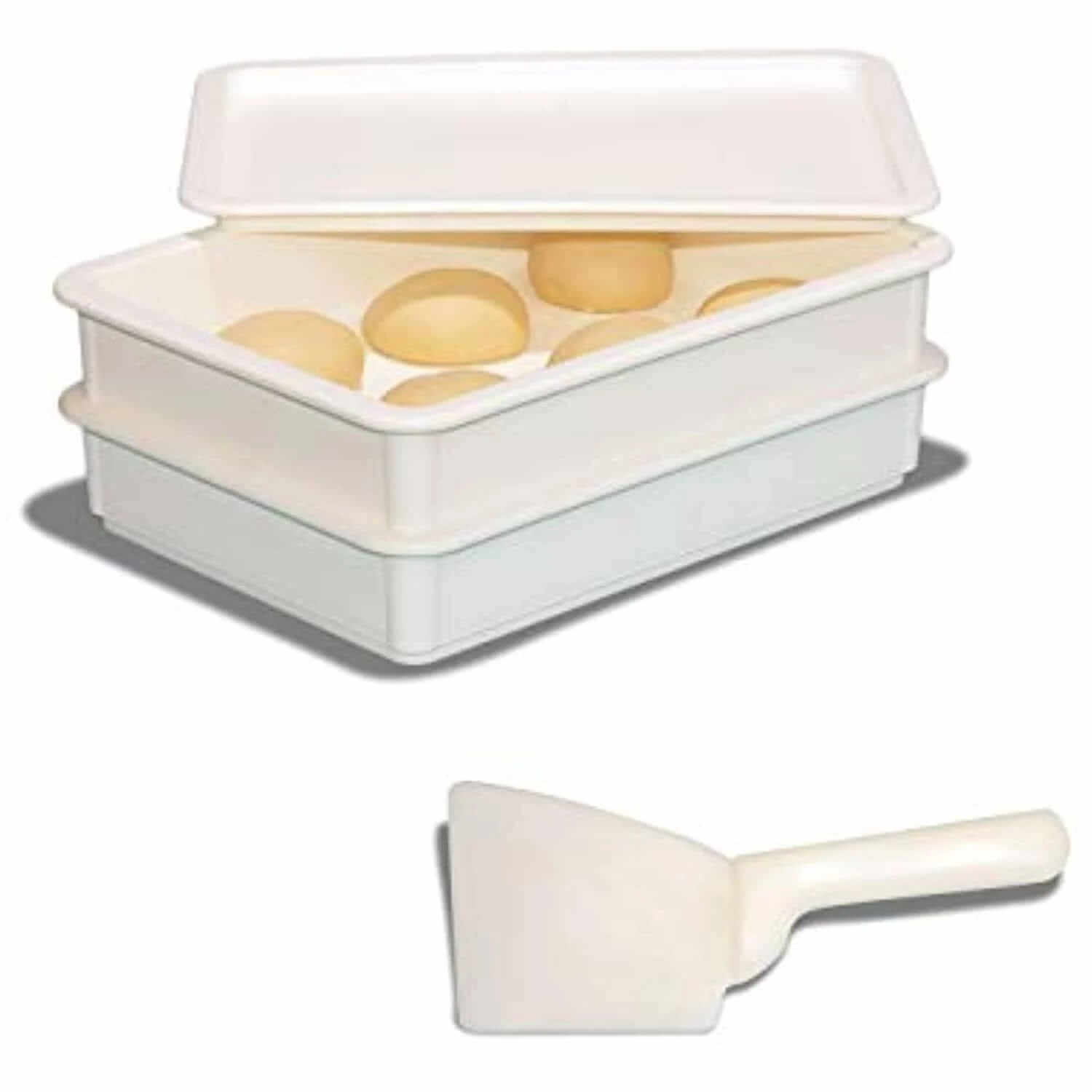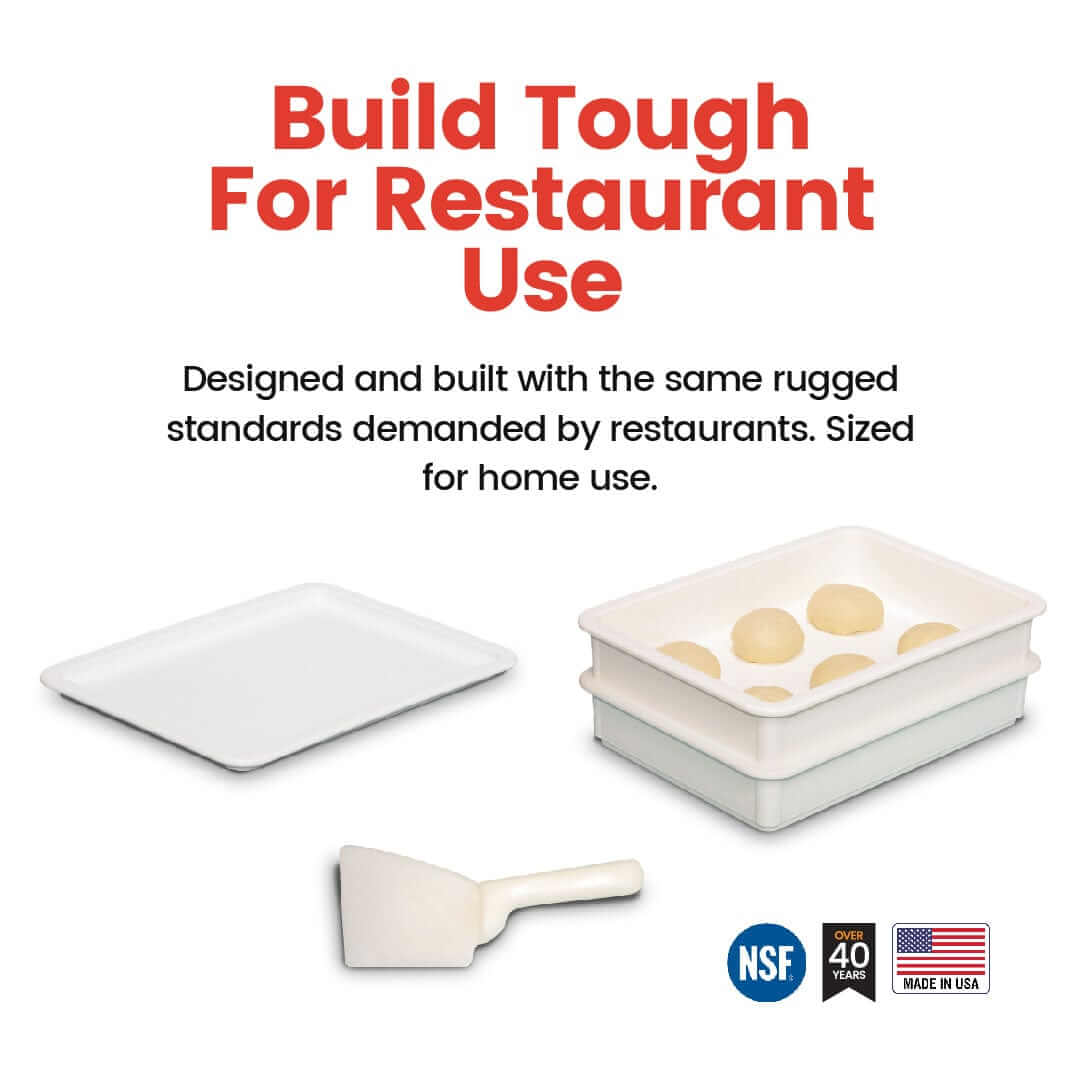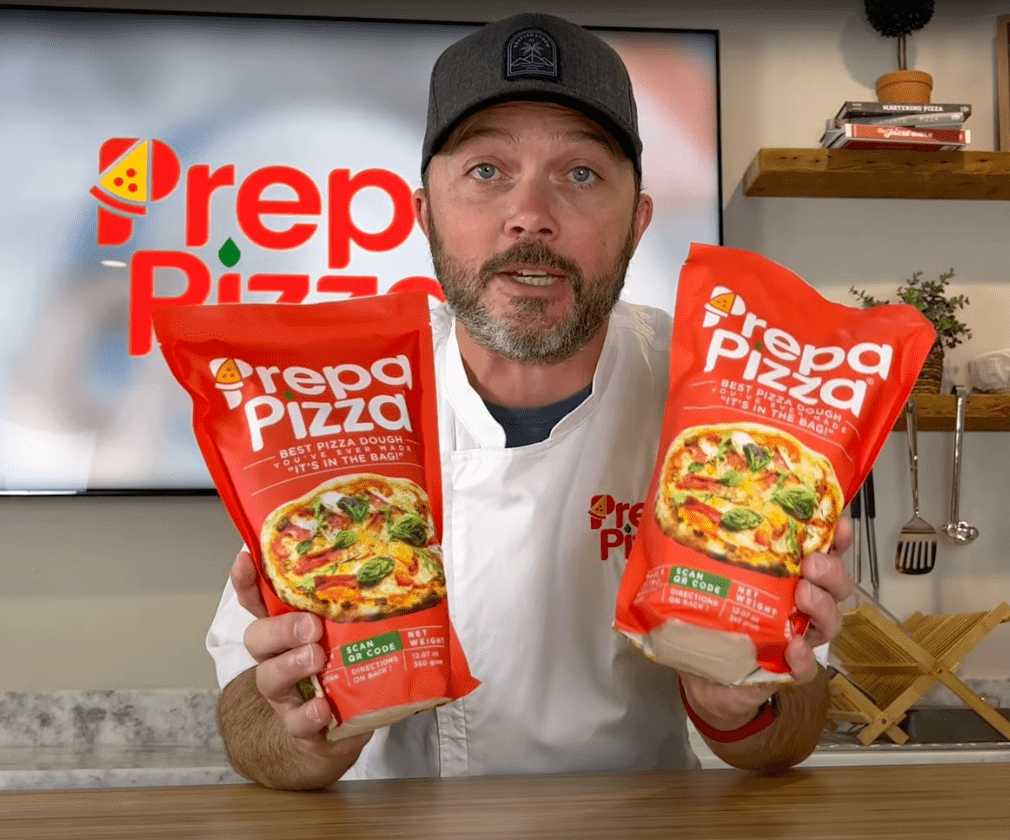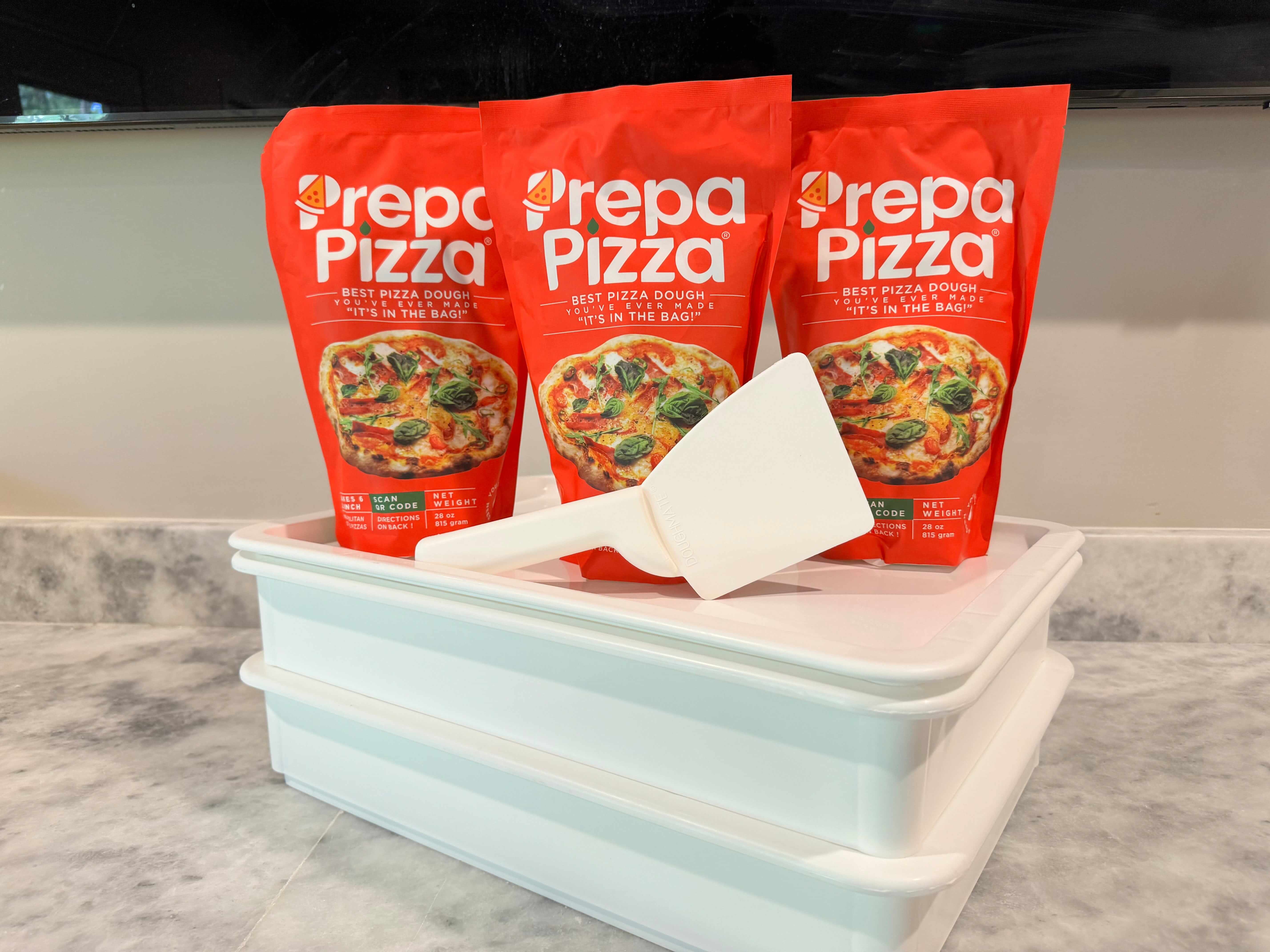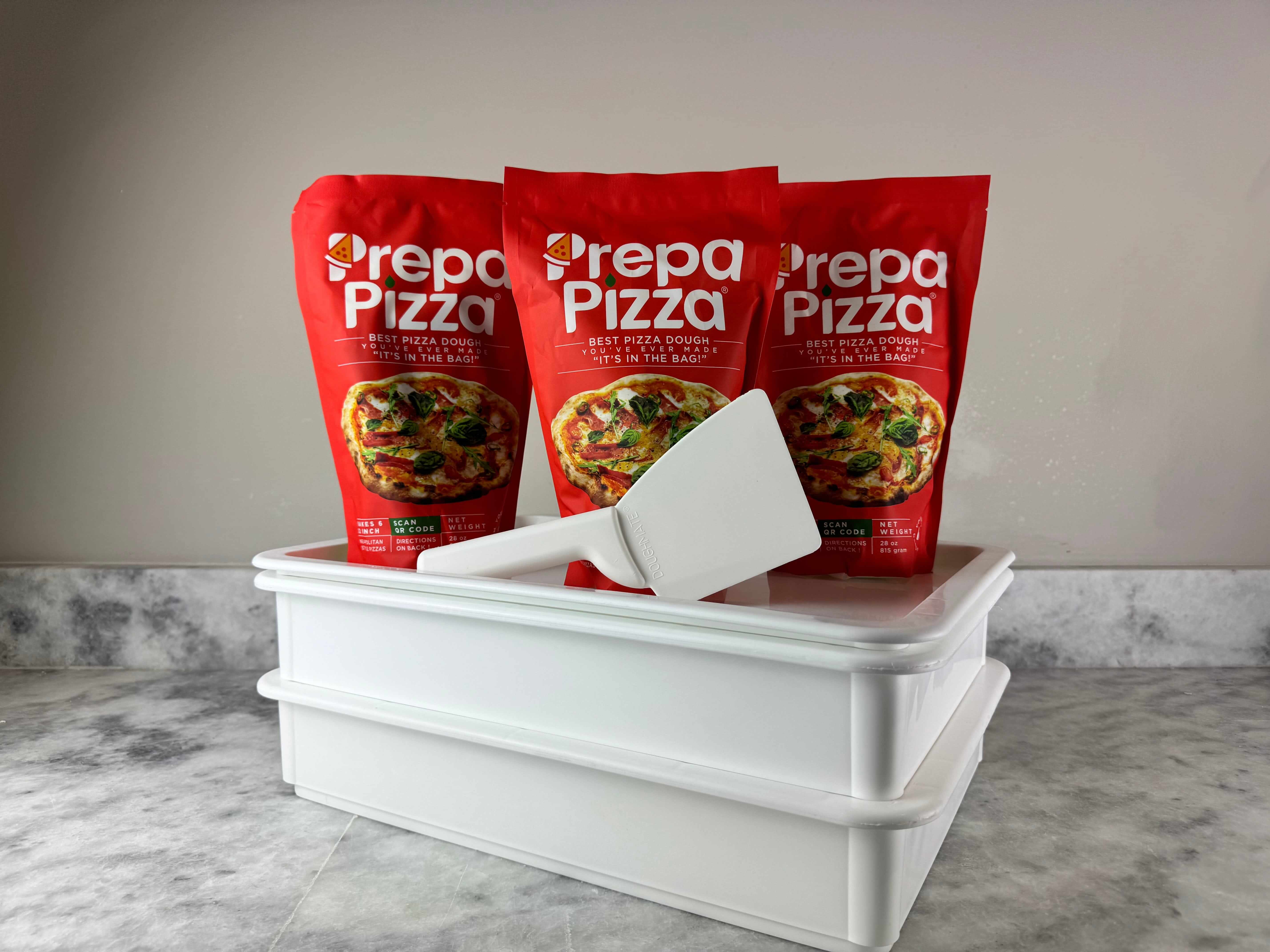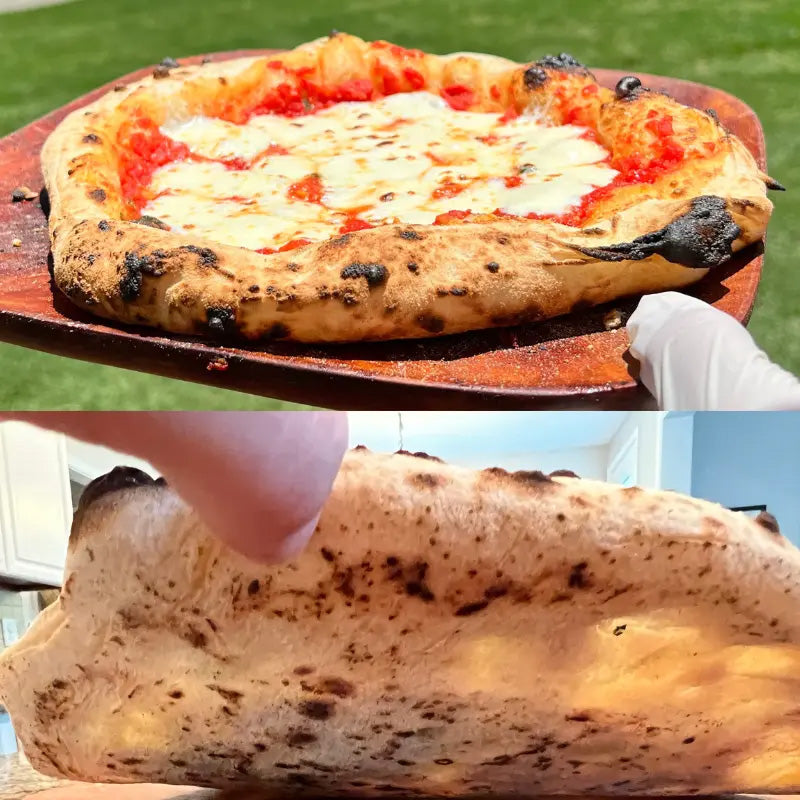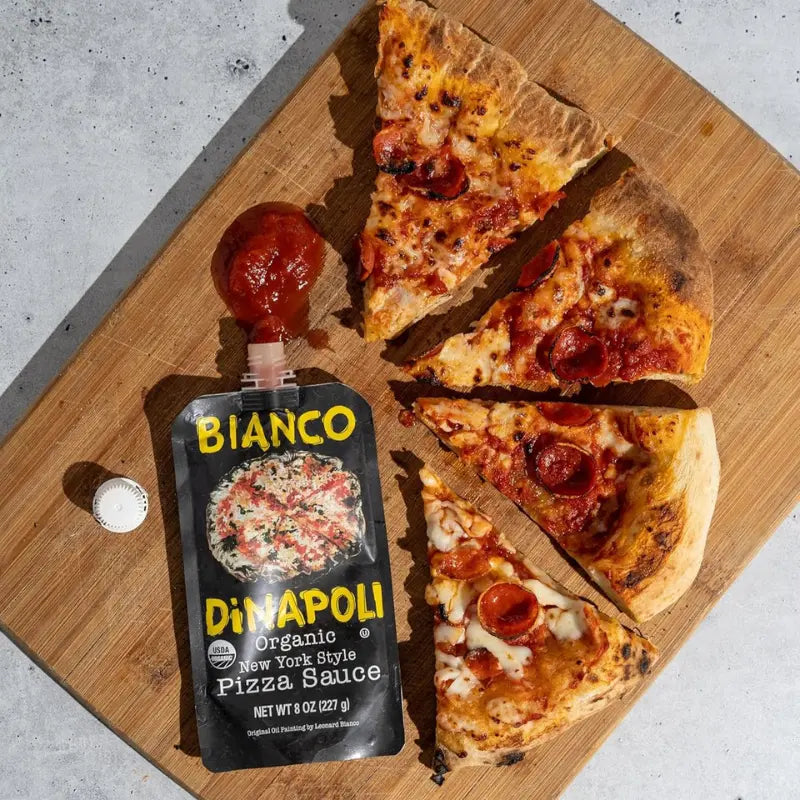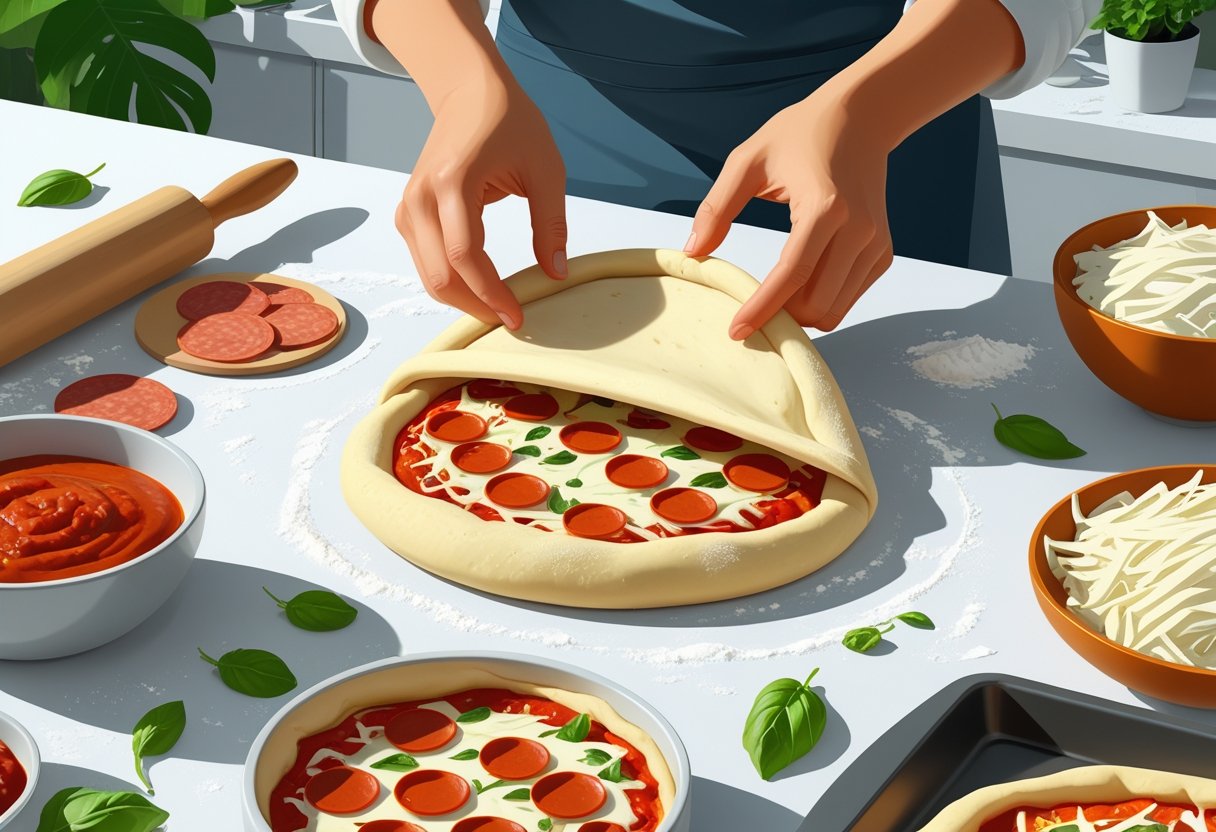
Can You Use Pizza Dough to Make Calzones? Exploring the Versatility of Your Pizza Base
If you're wondering whether you can use pizza dough to make calzones, the answer is a resounding yes. Pizza dough serves as an excellent base for calzones, allowing you to create a delicious, stuffed pocket of flavor that’s easily customizable. With premade options like Prepa Pizza's high-quality dough, you can save time and still enjoy a restaurant-quality dish right at home. Check out the Prepa Pizza dough for a convenient and easy solution.
Making calzones is not only straightforward but also incredibly rewarding. By simply filling the pizza dough with your favorite ingredients, folding it over, and baking, you’ll have a warm, satisfying meal in no time. Whether you prefer classic cheese and pepperoni or want to explore more gourmet fillings, using pizza dough is a versatile choice for your calzone creations.
Dive into the art of making calzones with pizza dough, and you'll discover how simple yet delicious this dish can be. Armed with the right dough, such as that from Prepa Pizza, you can enjoy homemade calzones that rival your favorite pizzeria.
Can You Use Pizza Dough to Make Calzones?
Yes, you can definitely use pizza dough to make calzones. This versatile dough can create delicious folded pizza creations. Using high-quality premade pizza dough, such as that from Prepa Pizza, ensures great flavor and texture for your calzones.
The Differences Between Pizza Dough and Calzone Dough
While pizza dough and calzone dough seem similar, there are some key differences. Calzone dough typically has a slightly different hydration level, making it a bit sturdier to hold more fillings. This difference helps in creating a pocket that won’t easily break, ensuring that the flavors stay contained.
Calzone dough is also often seasoned differently, potentially incorporating olive oil or herbs that enhance the flavor of the final product. However, using pizza dough can still yield excellent results, especially when you roll it out to the right thickness for folding.
How Pizza Dough Performs in Calzone Recipes
Using pizza dough for calzones can be highly effective. The first step is to roll out the dough into a thin round shape, ideally around ¼ inch thick. This thickness strikes a balance between sturdiness and flexibility.
With Prepa Pizza's premade dough, you benefit from a quality product that performs well in calzone recipes. Fill your folded pizza with your choice of ingredients like cheese, meats, and vegetables. Be cautious with the amount of filling; overstuffing can compromise the seal and lead to spillage during baking.
Baking at a high temperature, around 400°F, ensures a crispy crust while properly cooking the filling. You can achieve a beautifully golden-brown finish, making your calzone both appealing and delicious.
How to Make Calzones with Pizza Dough
Creating delicious calzones using pizza dough is a straightforward process. By using high-quality dough, such as that from Prepa Pizza, you can ensure an exceptional final product. With the right ingredients and techniques, your calzones will achieve a perfect balance of flavor and texture.
Essential Ingredients and Tools
To make calzones, gather the following key ingredients:
- Pizza Dough: Use Prepa Pizza's premade dough for convenience and quality. You can find it here.
- Cheese: Opt for a combination of mozzarella, ricotta, and grated Parmesan cheese for rich flavor and creaminess.
- Sauce: Choose marinara or a pizza sauce to provide moisture and flavor.
- Fillings: Popular options include pepperoni, vegetables, or cooked meats.
- Seasoning: Add Italian seasoning and garlic powder for extra flavor.
- Tools: You'll need a baking sheet, parchment paper, a rolling pin, and a pizza cutter.
Step-by-Step Assembly Instructions
- Preheat Oven: Set your oven to 475°F (245°C). This ensures a well-cooked and crispy crust.
- Roll Out Dough: On a floured surface, roll out your pizza dough into circles about 6-8 inches in diameter. Use a rolling pin to achieve even thickness.
- Add Fillings: Place your desired cheese and fillings on one half of the dough circle. Leave a border of about 1 inch around the edge.
- Seal the Calzone: Fold the other half of the dough over the fillings. Press the edges together firmly, then crimp them with a fork to seal completely.
- Prepare for Baking: Place the calzone on a baking sheet lined with parchment paper. Brush the top with olive oil for a golden finish.
Expert Tips for a Golden and Crispy Crust
To achieve the perfect crust on your calzones, consider these expert tips:
- Baking Surface: If available, use a pizza stone preheated in the oven for an extra crispy base.
- Baking Time: Bake your calzones for 15-20 minutes or until they turn a beautiful golden brown. Keep an eye on them as baking times may vary.
- Ventilation: Cut small slits in the calzone before baking to allow steam to escape, preventing sogginess.
- Finishing Touch: For added flavor, sprinkle some grated Parmesan cheese on top before baking.
By following these steps, you will create perfectly cooked calzones filled with your favorite ingredients and a delightful crispy crust.
Best Fillings and Toppings for Calzones
When making calzones, the choice of fillings and toppings can elevate your dish from simple to spectacular. Using Prepa Pizza's premade pizza dough makes it easy to craft delicious calzones filled with your favorite ingredients. You can customize them to suit any taste preference.
Classic Combinations: Cheese, Meat, and Vegetable
Starting with the classics, cheese is a must-have filling for any calzone. Opt for shredded mozzarella for a gooey texture. Pair it with pepperoni slices, Italian sausage, or ground beef for a savory punch.
Veggies like sautéed mushrooms, spinach, onions, and bell peppers add flavor and nutrition. Use pizza sauce as a base layer within the calzone to enhance the overall taste.
These traditional combinations create a hearty and satisfying meal, perfect for any occasion.
Creative Calzone Variations
Don’t hesitate to experiment. For a twist, try a BBQ chicken calzone, stuffing it with shredded chicken, BBQ sauce, and mozzarella. Another creative option is a meat lovers calzone, filled with an assortment of meats, including bacon, sausage, and pepperoni.
For something unique, consider a breakfast calzone by incorporating scrambled eggs, cheese, and spinach. Each of these variations allows your creativity to shine while keeping the classic calzone format.
Vegetarian and Protein-Packed Options
Vegetarian calzones can be just as satisfying. Fill them with a mix of spinach, mushrooms, onions, and bell peppers. Adding ricotta cheese or a blend of Italian cheeses enhances flavor.
For a protein punch without meat, consider options like chickpeas or even tofu combined with spices. With Prepa Pizza's premade dough, you can easily create these vegetarian delights, making it an inclusive meal option for all. Enjoy a guilt-free indulgence that doesn't skimp on taste.
Baking, Serving, and Storing Calzones
When preparing calzones, the right baking methods, proper serving, and effective storage techniques make a significant difference in taste and quality. Using Prepa Pizza’s premium premade dough ensures a reliable base for your calzones, allowing for a great filling experience whether you're serving them for lunch, dinner, or as a fun portable meal. You can explore Prepa Pizza's premade options here.
Baking Methods: Sheet, Stone, and Pan
Choose your baking method based on the desired texture of your calzone. You can use a baking sheet lined with parchment paper for easy cleanup. Preheat your oven as recommended on the dough package. Typically, a temperature of 425°F is ideal for a crispy crust.
Alternatively, a pizza stone offers superior heat retention, promoting a perfectly baked exterior. Place the stone in the oven while preheating to allow it to absorb heat. For a third method, a baking pan can be utilized for stuffed calzones, but remember to oil it slightly to prevent sticking.
Baking time can range from 15 to 20 minutes, depending on your oven and the dough thickness. Look for a golden-brown crust to signal they’re ready.
How to Prevent a Soggy Calzone
To ensure your calzone retains its crispy texture, avoid adding too much moisture to the filling. If using ingredients like vegetables, consider pre-cooking them to release excess water. Drain any wet ingredients, such as canned tomatoes or sauces, before adding them to the calzone.
Another tip is to use a thin layer of cheese as a barrier between the filling and the dough, which can help keep moisture at bay. Cutting a few slits on the top of the calzone allows steam to escape during baking, further preventing sogginess.
Serving Ideas and Dipping Sauces
Calzones are versatile and can be served with a variety of accompaniments. Marinara sauce is a classic choice for dipping, complementing the flavors of cheese and toppings. Ranch dressing also offers a creamy contrast, while alfredo sauce can add a rich texture.
Consider adding side salads or breadsticks for a more complete meal. You can cut the calzone in half for easier dipping and sharing, making them perfect for gatherings or casual lunch settings. These options enhance the overall dining experience and can cater to diverse tastes.
Storage, Reheating, and Freezing Tips
Storing leftover calzones correctly preserves their quality. Let them cool completely, then place the calzones in an airtight container. They can generally be stored in the refrigerator for up to three days.
To reheat leftover calzone, place it in a preheated oven at 350°F for about 10-15 minutes, ensuring it returns to a crispy state. If you want to freeze calzones, wrap each one tightly in plastic wrap and then in aluminum foil. They can be stored in the freezer for up to three months. When ready to eat, allow them to thaw in the fridge overnight before reheating.
Nutrition and Dietary Considerations
Understanding the nutritional aspects of calzones is essential for making informed choices. This section will explore calories, macro-nutrient profiles, gluten-free options, and how to adjust fillings for a healthier outcome.
Calories and Macronutrients
When using pizza dough to make calzones, it's vital to consider the calories and macro-nutrient content. A standard pizza dough made with flour, water, and yeast typically contains around 200-300 calories per serving, depending on its thickness and size.
In addition to calories, macronutrients like carbohydrates, proteins, and fats play a key role. For instance, a serving of dough can contain approximately 40-60 grams of carbohydrates, 5-10 grams of protein, and 2-5 grams of fat. To simplify, here’s a typical breakdown:
| Macronutrient | Amount per Serving |
|---|---|
| Calories | 200-300 |
| Carbohydrates | 40-60g |
| Protein | 5-10g |
| Fat | 2-5g |
You can achieve a well-balanced meal by selecting quality ingredients, such as those found in Prepa Pizza’s premade dough, which ensures optimal texture and flavor.
Gluten-Free and Alternative Dough Options
For those with dietary restrictions, gluten-free pizza dough is a viable alternative. Options include dough made from almond flour, cauliflower, or chickpea flour. These alternatives provide unique flavors and nutrients while accommodating gluten sensitivities.
The nutritional profile of gluten-free dough varies. For instance, almond flour is higher in healthy fats, while cauliflower offers lower calories and increased fiber. If you prefer a restaurant-quality dough, consider using Prepa Pizza, as it offers options that cater to various dietary needs.
Adjusting Fillings for Healthier Calzones
Fillings can significantly alter a calzone's nutritional profile. Opt for vegetables, lean meats, and low-fat cheeses to enhance nutrition without excess calories. For example, spinach, mushrooms, and bell peppers are excellent options.
Incorporating protein-rich ingredients like chicken or turkey while reducing the quantity of cheese can provide balanced nutrition. You can also use whole foods like beans or legumes for added fiber.
Making mindful choices about what goes inside your calzone ensures that you enjoy a delicious meal that meets your dietary preferences.
Calzones and Other Italian Specialties
Calzones represent a delicious aspect of Italian cuisine, offering a portable pizza experience. While making calzones, consider using Prepa Pizza’s premade dough, which ensures a quality result with minimal effort. This dough can elevate your cooking experience by saving time while delivering a restaurant-quality product.
Stromboli vs. Calzone: Key Differences
The terms "Stromboli" and "calzone" often confuse many, yet they have distinct characteristics. A calzone is typically folded over, creating a crescent shape that encloses fillings, which often include cheeses, meats, and vegetables. In contrast, Stromboli is rolled like a log and is usually filled with ingredients such as mozzarella, pepperoni, and various vegetables, which are then baked until crispy.
The cooking methods also differ. Calzones are usually baked at a higher temperature for a shorter time, allowing for a crisp crust without compromising the fillings. Stromboli, however, is baked longer to ensure that all components meld together. Understanding these differences will help you choose the right dish for your next Italian meal.
Exploring the Calzone’s Place in Italian Cuisine
Calzones are more than just a meal; they hold a significant spot in Italian culinary traditions. Originating from Naples, they were traditionally made with leftover pizza dough and fillings. Today, calzones are widely embraced both in Italy and worldwide, often served as a street food option. Their versatility allows for endless variations, accommodating personal preferences or dietary needs.
Common fillings include ricotta, mozzarella, and various meats, all wrapped in a tender dough. This adaptability makes calzones a favorite for gatherings and family dinners. You can easily whip up a batch using Prepa Pizza’s premade dough, ensuring a convenient yet authentic experience.
The Calzone as a Culinary Adventure
Making calzones can be a fun culinary adventure for any home cook. Experimenting with different fillings allows you to explore flavors and textures that appeal to your palate. Whether you stick to classic combinations or venture into unique territory, the choice is yours.
For a delightful twist, add ingredients like spinach, artichokes, or various cheeses. Pair your creations with dipping sauces, such as marinara or garlic butter, to enhance the overall experience. Additionally, using Prepa Pizza’s premade dough ensures that the foundation of your dish is delicious and easy to prepare, inviting creativity in the kitchen.
Frequently Asked Questions
Using pizza dough to create calzones can lead to delicious results with a few adjustments. You will find that the preparation and baking techniques differ slightly, which can enhance your final product.
What adjustments are necessary when using pizza dough for calzone recipes?
When using pizza dough for calzones, you may need to adjust the thickness. A thicker dough helps contain the fillings without breaking. Consider rolling out your Prepa Pizza dough to a slightly larger diameter, allowing for better filling capacity.
How does the baking time or temperature vary between calzones and pizzas when using the same dough?
Calzones typically require a longer baking time than pizzas, even when using the same dough. The ideal temperature remains around 475°F, but calzones might need an additional 5-10 minutes in the oven to ensure the inside is cooked thoroughly without burning the exterior.
What are the ideal fillings to use when creating a calzone with pizza dough?
When creating a calzone, consider using ricotta cheese, mozzarella, and a variety of other proteins or vegetables. Popular choices include spinach, pepperoni, and mushrooms. Aim for a balance of moisture and flavor, ensuring your filling doesn't overpower the dough.
Is there a difference in dough preparation between pizza and calzone baking?
Yes, dough preparation can differ slightly. For calzones, it's advisable to let the dough rest longer after rolling it out. This helps retain elasticity, making it easier to fold and seal the edges without tearing.
Have any tips for ensuring a calzone made with pizza dough doesn't become soggy?
To prevent a soggy calzone, avoid overfilling and drain any wet ingredients like sauce or vegetables. Using Prepa Pizza dough, which is designed with quality ingredients, can also help maintain structure. Consider adding a light dusting of flour on the inside before adding fillings to absorb excess moisture.
How can you adapt a traditional pizza dough recipe to better suit a calzone?
To adapt a pizza dough recipe for calzones, increase the hydration slightly to make the dough more pliable. Additionally, adding a bit of olive oil can enhance flavor and texture. Prepa Pizza's premade dough is a great option for achieving that perfect calzone consistency without extensive adjustments.




